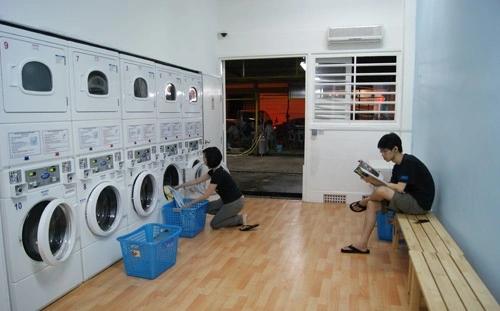In 2025, the global labor market continues to reflect a wide variety of working cultures, regulations, and economic demands. According to a report by the International Labour Organization (ILO), some countries have significantly longer average working hours than others. Below is a detailed look at the top 10 countries where employees clock the most hours per week.
1. Bhutan: 54.4 Hours per Week
Topping the list is Bhutan, a country with a small population but a remarkable work ethic. Employees in Bhutan work an average of 54.4 hours per week, making it the global leader in extended working hours. The country’s economy, heavily reliant on agriculture, hydropower, and tourism, requires significant labor input. This high number reflects the dedication of the workforce to drive economic growth and sustain development efforts.
2. United Arab Emirates (UAE): 50.9 Hours per Week
The UAE secures the second spot with employees working 50.9 hours weekly. Known for its rapid economic growth fueled by oil revenues, tourism, and trade, the UAE has a fast-paced work culture. Many expatriates contribute to the labor force, often working long hours to meet the demands of this thriving economy.
3. Lesotho: 50.4 Hours per Week
In third place is Lesotho, where people work an average of 50.4 hours per week. This African nation’s economy is heavily dependent on textile manufacturing and subsistence agriculture. Workers often endure long hours to meet production targets and ensure financial stability for their families.
4. Congo: 48.6 Hours per Week
Ranked fourth, Congo has an average workweek of 48.6 hours. The country’s economy relies on mining, agriculture, and forestry, with employees often working extended hours under challenging conditions. These long hours are driven by the need to sustain livelihoods and contribute to national development.
5. Qatar: 48 Hours per Week
Qatar comes in fifth, with employees working an average of 48 hours per week. Known for its wealth and development, driven by its natural gas and oil industries, the country has a high demand for skilled and unskilled labor. Migrant workers form a significant portion of the workforce and often work long hours to support the country’s ambitious infrastructure projects and economic goals.
6. Liberia: 47.7 Hours per Week
Liberia ranks sixth, with employees clocking an average of 47.7 hours per week. Agriculture dominates the economy, and workers often put in long hours to ensure sufficient production of staples like rice and cassava. Additionally, small-scale businesses contribute to the country’s working hours as many individuals engage in multiple jobs.
7. Mauritania: 47.6 Hours per Week
Mauritania shares the seventh spot with Lebanon, where employees work an average of 47.6 hours per week. The economy of Mauritania is heavily reliant on mining and fishing. Workers face long hours to maintain steady outputs in these key industries, highlighting the labor-intensive nature of the work.
8. Lebanon: 47.6 Hours per Week
Also at 47.6 hours per week, Lebanon’s workforce reflects the country’s challenging economic conditions. Many employees take on extended work hours to cope with economic instability, high living costs, and inflation. This resilience underscores the dedication of the Lebanese workforce in trying times.
9. Mongolia: 47.3 Hours per Week
At number nine, Mongolia has an average workweek of 47.3 hours. The country’s economy is driven by mining, agriculture, and trade. Workers often spend long hours in physically demanding jobs to support the economy and meet their families’ needs.
10. Jordan: 47 Hours per Week
Rounding out the top 10 is Jordan, where employees work an average of 47 hours per week. The country’s economy depends on sectors like tourism, trade, and services. Despite its challenges, Jordan’s workforce remains industrious, contributing to the nation’s growth and stability.
Key Takeaways
- Cultural and Economic Influences: The countries with the longest working hours often reflect unique cultural values and economic demands. Many of these nations rely on labor-intensive industries like agriculture, mining, and manufacturing.
- Challenges Faced by Workers: Extended working hours often come with challenges, including stress, reduced leisure time, and potential health risks. It is crucial for policymakers to address these issues to ensure sustainable work environments.
- Global Comparisons: While these countries report extended working hours, other nations have embraced shorter workweeks, emphasizing work-life balance. This contrast highlights the diverse approaches to labor practices worldwide.
Conclusion
The 2025 report from the ILO underscores the significant variation in working hours across countries. Bhutan leads the list, with employees working an average of 54.4 hours per week, followed closely by the UAE and Lesotho. These extended hours reflect the dedication and resilience of workers who contribute to their economies despite various challenges. Understanding these patterns can help shape future policies to improve working conditions and promote a healthy work-life balance globally.

